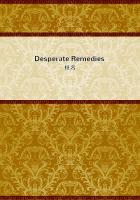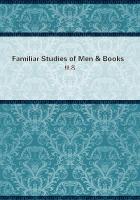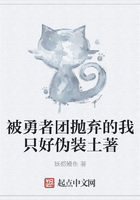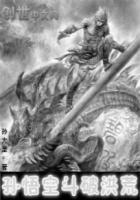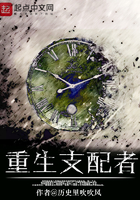Anne's voice became much lower now that there were two listeners, and her modesty shrank somewhat from exposing to Festus the appreciative modulations which an intelligent interest in the subject drew from her when unembarrassed. But she still went on that he might not suppose her to be disconcerted, though the ensuing ten minutes was one of disquietude. She knew that the bothering yeoman's eyes were travelling over her from his position behind, creeping over her shoulders, up to her head, and across her arms and hands. Old Benjy on his part knew the same thing, and after sundry endeavours to peep at his nephew from the corner of his eye, he could bear the situation no longer.
'Do ye want to say anything to me, nephew?' he quaked.
'No, uncle, thank ye,' said Festus heartily. 'I like to stay here, thinking of you and looking at your back hair.'
The nervous old man writhed under this vivisection, and Anne read on; till, to the relief of both, the gallant fellow grew tired of his amusement and went out of the room. Anne soon finished her paragraph and rose to go, determined never to come again as long as Festus haunted the precincts. Her face grew warmer as she thought that he would be sure to waylay her on her journey home to-day.
On this account, when she left the house, instead of going in the customary direction, she bolted round to the further side, through the bushes, along under the kitchen-garden wall, and through a door leading into a rutted cart-track, which had been a pleasant gravelled drive when the fine old hall was in its prosperity. Once out of sight of the windows she ran with all her might till she had quitted the park by a route directly opposite to that towards her home. Why she was so seriously bent upon doing this she could hardly tell but the instinct to run was irresistible.
It was necessary now to clamber over the down to the left of the camp, and make a complete circuit round the latter--infantry, cavalry, sutlers, and all--descending to her house on the other side. This tremendous walk she performed at a rapid rate, never once turning her head, and avoiding every beaten track to keep clear of the knots of soldiers taking a walk. When she at last got down to the levels again she paused to fetch breath, and murmured, 'Why did I take so much trouble. He would not, after all, have hurt me.'
As she neared the mill an erect figure with a blue body and white thighs descended before her from the down towards the village, and went past the mill to a stile beyond, over which she usually returned to her house. Here he lingered. On coming nearer Anne discovered this person to be Trumpet-major Loveday; and not wishing to meet anybody just now Anne passed quickly on, and entered the house by the garden door.
'My dear Anne, what a time you have been gone!' said her mother.
'Yes, I have been round by another road.'
'Why did you do that?'
Anne looked thoughtful and reticent, for her reason was almost too silly a one to confess. 'Well, I wanted to avoid a person who is very busy trying to meet me--that's all,' she said.
Her mother glanced out of the window. 'And there he is, I suppose,' she said, as John Loveday, tired of looking for Anne at the stile, passed the house on his way to his father's door. He could not help casting his eyes towards their window, and, seeing them, he smiled.
Anne's reluctance to mention Festus was such that she did not correct her mother's error, and the dame went on. 'Well, you are quite right, my dear. Be friendly with him, but no more at present.
I have heard of your other affair, and think it is a very wise choice. I am sure you have my best wishes in it, and I only hope it will come to a point.'
'What's that?' said the astonished Anne.
'You and Mr. Festus Derriman, dear. You need not mind me; I have known it for several days. Old Granny Seamore called here Saturday, and told me she saw him coming home with you across Park Close last week, when you went for the newspaper; so I thought I'd send you again to-day, and give you another chance.'
'Then you didn't want the paper--and it was only for that!'
'He's a very fine young fellow; he looks a thorough woman's protector.'
'He may look it,' said Anne.
'He has given up the freehold farm his father held at Pitstock, and lives in independence on what the land brings him. And when Farmer Derriman dies, he'll have all the old man's, for certain. He'll be worth ten thousand pounds, if a penny, in money, besides sixteen horses, cart and hack, a fifty-cow dairy, and at least five hundred sheep.'
Anne turned away, and instead of informing her mother that she had been running like a doe to escape the interesting heir-presumptive alluded to, merely said 'Mother, I don't like this at all.'

